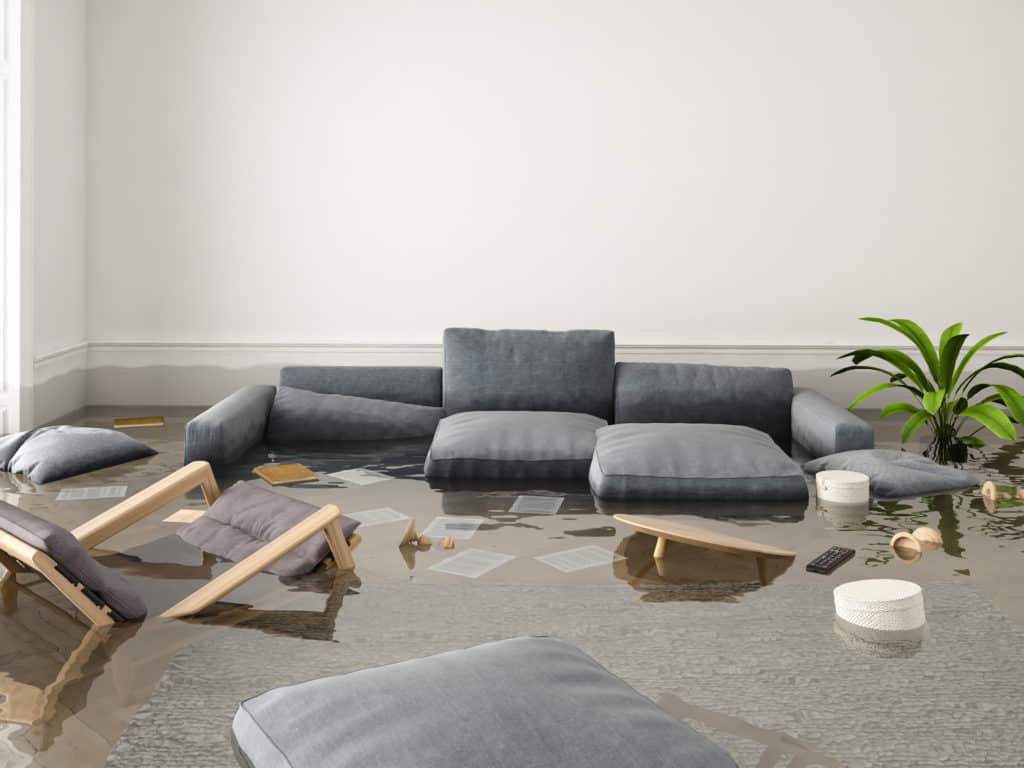In this article, we will be breaking down vacation rental damage deposits & property damage protection fees to safeguard your short-term rental business.
As an owner, you have to balance the need to avoid damage to your property with deterring guests from booking altogether because of hefty fees. This is where damage deposits and property damage protection comes into play.
Wear & Tear vs Damage
When you rent out your property, it is reasonable to expect some degree of wear and tear. After all, normal usage may still result in some breakages or things needing to be replaced.
Small costs such as a broken cup or plate can easily be covered in the rental fee. This will help with good reviews and repeat business if your guests feel you are reasonable when they tell you they dropped a glass and you didn’t leap to add it to their bill. Just incorporate a nominal cost to cover wear and tear when you set your rates each year.
It is not advisable to decorate your vacation rental with rare and valuable items, unless you intend to use these to differentiate your offer. But if you are concerned about rare, antique glassware or an expensive artwork, make sure these are covered by the appropriate insurance.
It is the more serious damage and other unusual incidents that cause more of a problem, such as red wine spilt on a carpet, a broken window or a torn seat cover. Repairing or replacing these can be a more costly exercise.
There are two approaches to cover these: taking a vacation rental damage deposit or collecting a property damage protection fee. But first, some really simple practical advice on how to pre-empt the worse in the first place.
Plan Ahead
To minimise the risk of damage, make sure you provide guests with a well-documented Guest Handbook and Welcome pack where you can explain how to operate key appliances safely, and make your guests aware of anything else they should know to avoid obvious mistakes (for example a list of items that should not be put in the dishwasher).
You should also consider the use of appropriate signage or stickers wherever relevant.
Another good idea is to make sure your handbook includes a clear list of emergency phone numbers to use to contact the relevant local repair and service personnel, should any of the accommodation’s main appliances stop working, or should any fixtures be broken. Most guests are decent people who are more than happy to fix any accidental damage.
Vacation Rental Damage Deposits
Put simply, damage deposits are refundable charges that are added on to the cost of a booking. Also referred to as a Security or Safety Deposit, they are designed to cover any damage that might occur when guests stay at your property.
The deposit is usually collected prior to arrival and it gives you some peace of mind because if something does get broken or damaged, you already have money in the bank to cover any repair or replacement cost.
Damage deposits also give your guests a financial incentive to take care of your property, since their deposit will be refunded if they leave the place in good order.
The value of any damage deposits is up to you, and may vary according to the quality and cost of the furnishings, the number of guests, the length of stay and how much you charge.
You’ll want your deposit to be reasonable compared to the rental cost, but high enough to make you feel comfortable handing over the keys to your property. Asking too much may seem excessive and make people reluctant to complete their booking. You can choose to charge a flat fee or a percentage of the total booking cost.
You may also consider merely pre-authorising a deposit rather than actually collecting it. A preauthorisation means that the guest’s bank authorises the expense in advance, but no monies are collected until you actually charge the guest card – the advantage of a preauthorisation is that is saves you the hassles of having to process any refunds.
Property Damage Protection Fee (PDP) or Damage Waivers
Property Damage Protection (PDP), also known as a damage waiver, is a small non-refundable charge added to every booking, much like a booking fee.
It is taken in lieu of larger vacation rental damage deposits and is intended to cover damages up to a certain cost. Guests need to report any damage in a timely manner for it to be valid (and to help you take any remedial action) and acts of malicious damage are excluded.
But guests know that if an accident occurs, it’s not going to cost them. In the event that any damages cost more than the amount covered by the waiver, these are still payable by the guest.
Of course, if there is no damage to rectify, then you won’t have to spend the money you have collected. This can then go into a fund you build up to cover future damages if any!
Guest Perceptions
Damage deposits require a steep upfront payment on the part of your guests, unless you choose to merely pre-authorise the deposit. If no damage occurs during their stay, the deposit is refunded in full (or the preauthorisation cancelled).
Deposits (and the desire to recover them) helps ensure that guests are more mindful of their actions (and their consequences), and they will discourage less responsible guests.
A property damage protection fee is typically a much smaller fee collected upfront with the caveat that it is not refundable.
There is a chance that guests could see this as an excuse to take less care, and think that they’ve paid for some sort of insurance against any damage whether any takes place or not.
On the other hand, they do not have to find additional cash to secure the deposit on their booking, which will make staying with you a more attractive price proposition.
Collecting damage deposits
A damage deposit is pre-authorised or collected and held in advance of the guest’s stay. After check-out, if there is no damage, the deposit is fully refunded.
You can collect damage deposits at the time of booking, or even better, a few days before check-in.
If your property management software includes an integrated payment solution like Payment ManagerTM, the preauthorisation or the collection of the damage deposit can be automated at any time.
With a preauthorisation, you are protected and can charge the amount at any time, but your guest is never inconvenienced as their card would only be charged and a deposit would only be collected when damage actually occurs.
A property damage protection fee is also collected in advance of the stay but given that it is a smaller amount, the timing of when it is collected isn’t so critical, and it may be advantageous and more practical for all concerned, to collect it upfront, at the time of booking.
Whether you are collecting a damage deposit or a property damage protection fee, it is best to be totally transparent with the guest, set expectations upfront, and ensure that your terms and conditions are crystal clear. These should include:
- What the charge is for
- What is covered/excluded
- How much will be collected and when
- Deadline by which the guest needs to report any damages
- How should the guest report any damage
- When and how the deposit will be returned
If guests are booking via a third party, clarify who is taking the deposit – you or the travel agency? Finally you should include your damage policy in your rental agreement or booking terms and ensure your guests acknowledge these when their booking is confirmed.
Dealing with Property Damage
If there has been any damage to the property, your guests should notify you.
As well as asking that guests notify you of any damage, invite them to let you know if they spot something that’s not working, or report broken items in your vacation rental.
It might not be apparent until someone uses an appliance that it is no longer functioning, and you won’t know unless you test everything, from the iron to the freezer, each time someone checks out.
If guests depart without mentioning anything, any damage must be identified as soon as possible after check out and certainly before your next guests arrive.
This is particularly important if you need to make a claim from your insurance. So, notify your guests of any found damage within 24 hrs if you can.
Notifying Your Guests about Property Damage
If you collected a damage deposit and have incurred damages, you’ll need to calculate how much of the deposit to retain. Be reasonable. Old for new might not really be the best approach, and smaller losses may not be worth worrying about.
To all extent possible, document the incident with care, when did it occur, who was responsible, and when it was discovered, before making a claim. You’ll need to prove the damage was caused by the guest in question, otherwise it’s your word against theirs.
A time-stamped picture/video between each guest’s stay can help make your case.
As long as you have been clear in your communication, firm in your conviction and fair in your assessment of any damage, finding a solution shouldn’t be too problematic.
A post-departure email template written in a professional but assertive tone (and not written in the heat of the moment) should prove quite useful.
If you receive a negative review as a result of your action, be sure to provide a response. A level-headed and reasonable explanation on the review site will often be more valuable than the initial complaint and criticism.
If you have a damage waiver, you don’t need to take any action, unless the damage is serious and exceeds the amount covered. Make sure such a scenario is covered in your terms and conditions.


